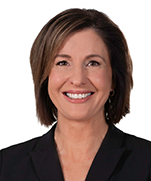Earlier this year, the US Department of Health & Human Services (“HHS”) released updated regulations governing the use and disclosure of substance use disorder records, referred to as “Part 2.” The Part 2 rules protect substance use disorder records maintained in connection with a “federally assisted program.” A “program” includes the following:
- A person (other than a general medical facility) that holds themselves out as providing substance use disorder diagnosis, treatment or referral for treatment;
- An identified unit within a general medical facility that holds itself out as providing, and provides, substance use disorder diagnosis, treatment or referral for treatment; or
- Medical personnel or other staff in a general medical facility whose primary function is the provision of substance use disorder diagnosis, treatment or referral for treatment and who are identified as such providers.
Programs are “federally assisted” if they receive financial assistance from HHS (or in certain cases, the Department of Veterans Affairs and Uniformed Services) including reimbursement from federal government healthcare programs such as Medicare and Medicaid.
What is sometimes confusing for providers is determining whether you’re a Part 2 covered program. For example, what if you’re a hospital with an emergency department that may provide detoxification services; or a family practice physician who may recommend treatment options for patients with substance use disorders? Physicians and other professional practices who may provide healthcare services to individuals with substance use disorders but do not hold themselves out as providing substance use disorder diagnosis, treatment, or referral services are probably not considered a Part 2 covered program. They should, however, confirm this position with legal counsel well versed in the Part 2 rules.
A hospital or other general medical facility that provides care to individuals with substance use disorders is also unlikely to be considered a Part 2 program as long as it does not have:
(a) an identified unit within the facility holding itself out as providing substance use disorder diagnosis, treatment or referral services; or
(b) medical personnel and/or staff whose primary function is the provision of substance use disorder diagnosis, treatment or referral services, and they are identified as such providers.
For hospitals and general medical facilities with either (a) or (b), those unit(s) or individuals will be Part 2 programs if they receive federal assistance, such as Medicare or Medicaid reimbursement.
While it is critical to understand whether you are a Part 2 covered program, even providers who are not Part 2 covered programs, must comply with Part 2 if they receive substance use disorder records covered by Part 2. That’s because the Part 2 protections follow the Part 2 covered record when it’s redisclosed, including when it’s properly disclosed to other healthcare providers. This week on our podcast we discuss how the new rules apply to providers who are HIPAA-covered entities but not Part 2 covered programs. We also have a special implementation checklist to help you get ready for your new compliance obligations:

